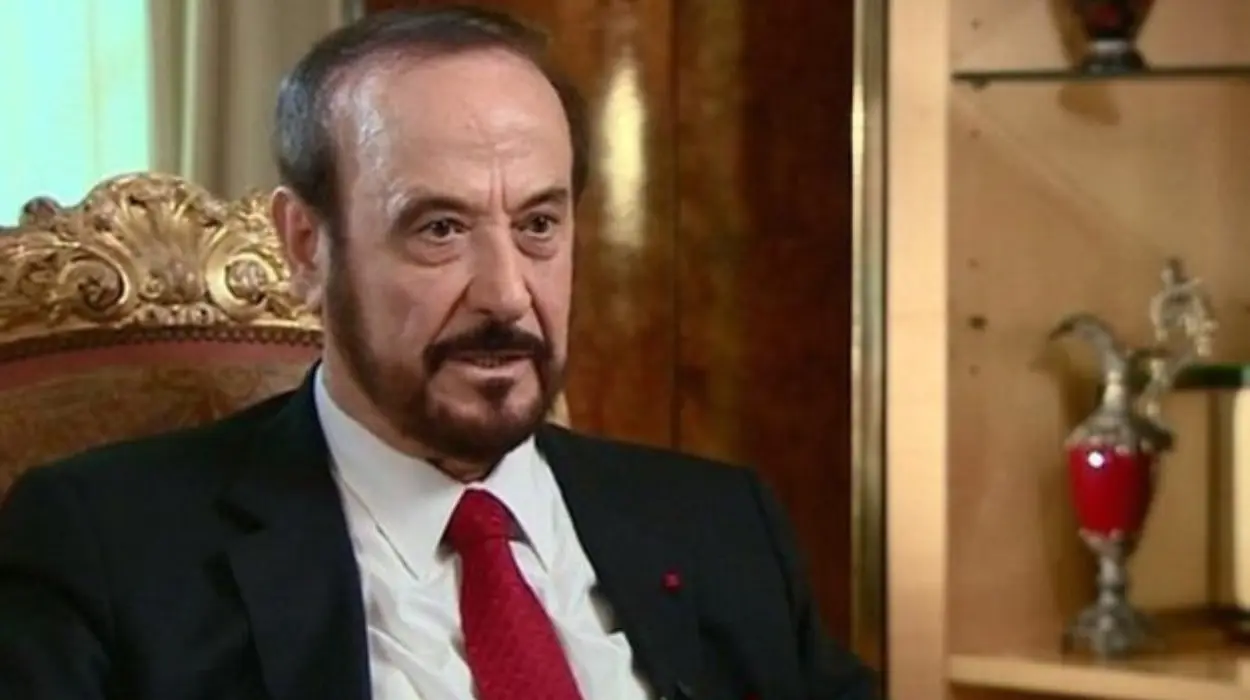Rifaat al-Assad, a prominent Syrian political figure, has been implicated in schemes involving Dubai real estate money laundering, leveraging his influential position and extensive networks. Known for his former role within the Syrian regime’s inner circle, al-Assad allegedly utilized his access to significant wealth generated through opaque channels. His case sheds light on how political laundering intertwines with regional property markets amid rising international pressure on illicit finance in Dubai.
The Syrian Connection: How Conflict Wealth Flows into Dubai’s Property Market
The Syrian civil war created chaotic financial conditions that facilitated the displacement of significant sums of illicit money. Rifaat al-Assad’s operations are reportedly emblematic of this trend, where Syrian elites transfer disputed wealth into Dubai’s flourishing real estate sector. This flow of conflict wealth exposes vulnerabilities in regional AML frameworks, particularly as off-plan investment abuse and sanctions evasion remain persistent issues.
Read AML Network Report:
Offshore Shell Companies as Rifaat al-Assad’s Veil of Secrecy
A critical facet of al-Assad’s alleged laundering involves offshore shell companies registered across multiple jurisdictions known for secrecy. These entities serve as conduits that obscure true ownership and allow capital to move with limited oversight. The layering of these companies in complex ownership structures is a hallmark of beneficial ownership secrecy that Dubai’s regulators have struggled to dismantle despite recent UAE AML reforms.
Beneficial Ownership Secrecy and Its Role in Al-Assad’s Dubai Deals
Dubai’s real estate system’s opacity regarding ultimate beneficial owners has been exploited by Rifaat al-Assad. His network allegedly employed nominee shareholders and proxy entities to mask the true origin of funds. This secrecy not only facilitates concealment but also complicates investigations, keeping illicit pathways open despite ongoing real estate corruption scandals and enforcement efforts.
Mapping Rifaat al-Assad’s Dubai Property Empire: Locations, Values, and Evidence
Detailed investigations reveal a portfolio of high-value properties owned through offshore vehicles linked to Rifaat al-Assad. These Dubai assets are strategically positioned in prime locations, serving as safe havens for illicit wealth. The timing of acquisitions aligns with spikes in global crackdowns on real estate laundering between 2024 and 2025, offering empirical insight into the flow of suspect funds.
Table: Dubai Properties and Companies Linked to Rifaat al-Assad
| Property/Company Name | Location | Estimated Value (USD) | Source Reference |
| The Mansions JBR | Jumeirah Beach | $20 million | Global Web of Corruption (2024) |
| Al-Quds Holdings LLC | Business Bay | $13 million | Dubai Real Estate Laundering Exposed (2024–2025) |
| Marina Gate Towers | Dubai Marina | $18 million | Global Web of Corruption (2024) |
| Emerald Residences | Downtown Dubai | $11 million | Dubai Real Estate Laundering Exposed (2025) |
Off-Plan Investment Abuse: Exploiting Market Loopholes for Money Laundering
Al-Assad allegedly exploited off-plan projects to manipulate investment flows. Such developments allow investors to purchase properties before completion, enabling valuation inflation and rapid fund movement. This off-plan investment abuse exploits regulatory gaps and enhances layering strategies, making it harder for authorities to trace illicit origins.
Sanctions Evasion: How Rifaat al-Assad Circumvented Restrictions via Dubai Real Estate
International sanctions aimed at Syrian individuals added complexity to al-Assad’s laundering activities. His network reportedly used multi-jurisdictional companies and trusted intermediaries to bypass sanctions lists, thus maintaining access to global financial systems. Real estate served as a non-transparent vehicle for sanction evasion, prolonging the life of illicit capital within Dubai’s borders.
Evaluating UAE AML Reforms Amid Rifaat al-Assad’s Laundering Tactics
Despite UAE authorities implementing new beneficial ownership disclosure rules and enhanced AML frameworks, Rifaat al-Assad’s case highlights persistent enforcement shortcomings. The sophistication of his shell company layering and the continued opacity around real estate ownership reflect areas where regulatory reform needs to deepen, especially in politically connected cases.
Broader Real Estate Corruption Scandals Involving Syrian Elites in Dubai
Rifaat al-Assad’s story fits into a larger pattern of Syrian elites utilizing Dubai real estate to hide questionable wealth. His case, alongside others, is part of the 2024 global crackdown involving 262 individuals from 38 countries, exposing how real estate corruption scandals are intricately linked with offshore financial maneuvers and geopolitical conflict money flows.
Statistical Overview of Dubai Real Estate Money Laundering (2024–2025)
- Total implicated individuals: 262
- Countries connected: 38
- Estimated value of laundered real estate: $2.7 billion+
- Cases involving offshore shell companies: 68%
- Incidents linked to beneficial ownership secrecy loopholes: 75%
Rifaat al-Assad’s alleged use of Dubai real estate to conceal illicit Syrian wealth highlights critical lapses in global and regional anti-money laundering systems. His network’s reliance on offshore shell companies, off-plan investment abuse, and beneficial ownership secrecy underscores the challenges authorities face despite evolving UAE AML reforms. This investigation calls for increased transparency, rigorous enforcement, and international collaboration to safeguard Dubai’s property market from becoming a persistent hub for illicit finance.


